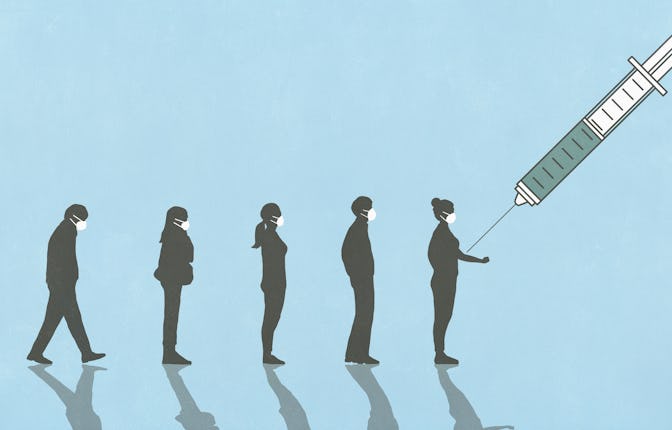Of course there's a gender divide when it comes to COVID vaccine immunity
Here's who has the edge, according to new research.

Now that may of us are vaccinated, we all want to know how long it lasts. Well, it turns out that — as in so many other areas of life — there may be a gender divide. According to new research, among people who got the Pfizer vaccine, immunity may weaken faster in men than in women, reported the Washington Post.
To be clear, by “women,” I mean people with vaginas and by “men,” I mean people with penises. We at Mic do not ascribe to these limited notions of gender, but most scientific journals still do. The study was published Wednesday in the New England Journal of Medicine. Researchers followed 4,868 health care workers in Israel for six months after they received their second dose of the Pfizer vaccine, from December 2020 to July 2021. What they found was that male assigned people, individuals over 65, and people with immunosuppressed conditions developed lower antibody levels than female assigned individuals.
Researchers found that female assigned individuals were more likely to develop higher protection against coronavirus after the second shot. Still, immunity weakened in all genders within three months, and after six months, immune response was significantly weakened for all participants, but especially for men, older people, and those with compromised immune systems, according to the study.
Well, it is heartening for me, personally, to think that people with vaginas have an edge in this particular regard. And it bolsters the case for booster shots, which have already been rolled out for some populations in the U.S. and for everyone in Israel, despite protestation from the U.N.. Everyone except, of course residents of Occupied Palestinian Territory, who just received their first doses of the vaccine in September.